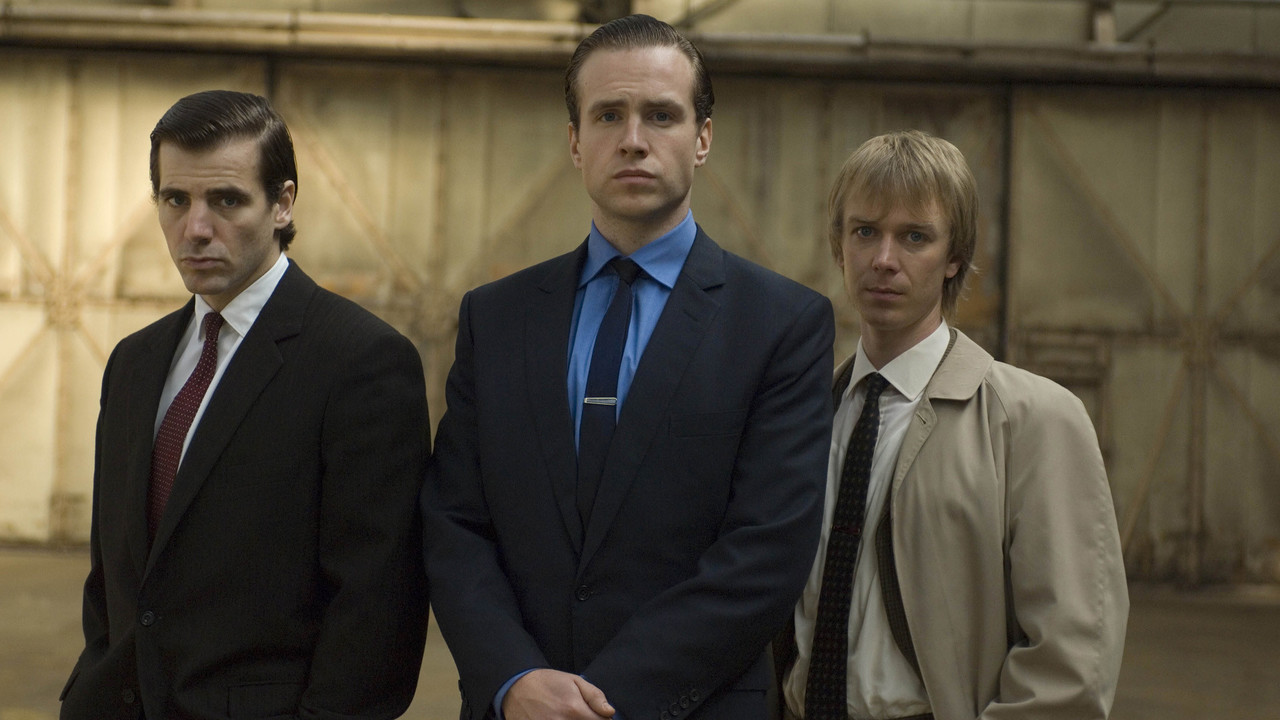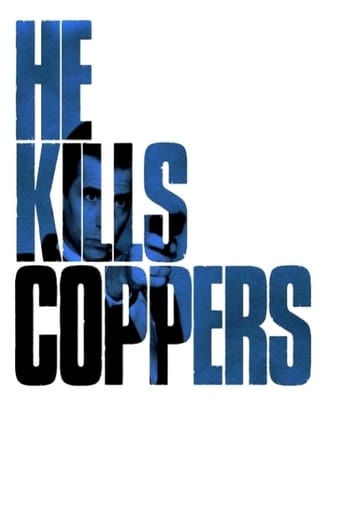



Boring, long, and too preachy.
As somebody who had not heard any of this before, it became a curious phenomenon to sit and watch a film and slowly have the realities begin to click into place.
View MoreOne of the best movies of the year! Incredible from the beginning to the end.
View MoreExactly the movie you think it is, but not the movie you want it to be.
View MoreHE KILLS COPPERS is the gritty spin off from THE LONG FIRM something that I considered to be one of the great BBC dramas . Even though this follow up is produced for Sunday night ITV it was produced by an independent company which means we're allowed to watch violence and bad language so you won't be confusing it with a family type show that we usually see in this time slot Unfortunately there's little connection with THE LONG FIRM . Throughout the story there's only one fleeting reference to Harry Starks . You could argue that the problem with Starks is that he's based too closely to Ronnie Kray to be a character in his own right . There is no argument here - villain Billy Porter is notorious cop killer Harry Roberts . Both served in Malaya and after murdering three policeman who caught him and his accomplices planning a robbery Porter/Roberts spent several months hiding in a desolate woodland . The drama even uses real life footage from the Roberts manhunt and it's something of a shock when Porter is caught in the woods he overpowers a policeman and escapes unlike Harry Roberts This plot twist sets up the final episode which possibly would have been compelling if it wasn't so stupid and contrived . Weirdo journalist Tony Meehan accidentally kills Porter's mother who is then killed by Porter after tracking him down to a peace camp . Porter manages to bury him in an unmarked grave and you'll be puzzled to know how and why and things come to a head in a lefty peacenik squat that sees Porter getting shot dead by an armed police response unit This is a fairly watchable drama but only in parts . By the end of the final episode you'll be wondering why there's so many subplots and lose ends included . Was it really necessary to have the lead detective's marital and family life included ? Did we need to see much of Porter's mother ? which seemed to be included just to cast Maureen Lipman thereby fooling the audience into thinking we'd be seeing a jokey comedy drama . Talking of comedy one of the main reason's I found THE LONG FIRM so great was the wonderful use of black comedy mixed in with the violence . In comparison HE KILLS COPPERS is grim and not nearly as memorable or enjoyable as its predecessor
View MoreFor a mainstream drama on ITV, 'He Kills Coppers' is remarkably harsh, complex and realistic; a long way from conventional serial-killer cliché. An enigmatic villain, and the under-Britain he inhabits, is set against a story of corrupt policeman: there's certainly promise in the premise. Unfortunately, the acting isn't brilliant (Steven Robinson as the journalist is particularly poor) and the direction relies too much on the soundtrack to insert some otherwise missing emotion. The real problem is that the story seems abbreviated; a succession of events enticingly set out but never fully elaborated; what's left is perfunctory, a barely illustrated outline. It's a shame, as I can believe there was potential here.
View MoreI was looking forward to this drama, which was serialised to three parts on TV, but have to say I was a little disappointed with the overall result. It is a dramatisation of a real life event which shocked the nation in 1966, the cold blooded murder of three policemen in Shepherds Bush, London, who happened across three armed villains in a car. What started as a run of the mill enquiry as to what they were up to ended up in what the British press at the time dubbed "The Massacre of Braybrook Street" Jake Arnott's novel takes a look at this crime and dramatises the events leading up to it and the aftermath. First we are introduced to two policemen from Central London, Jonathan Young and Frank Taylor, the latter an ambitious high flyer with his sights on promotion and the elite Flying Squad, and their involvement with a call girl, Jeannie, with whom Young falls for. Taylor's jealousy of his best friend leads him to orchestrating his transfer out of the West End and back to a low profile crime squad post in Shepherds Bush.Billy Porter, former soldier turned petty criminal, is shown as a violent offender with a quick temper who's spent time inside and does not relish the prospect of going back. He has formed a small gang with two accomplices who are into armed robberies with increasing violence, perpetrated in the main by Porter.We are also introduced to the shallow character of Tony Meehan, a small time newspaper reporter for a seedy rag, with some latent homosexual tendencies, who seems to be surrounded by other homosexual men wherever he goes, from gentleman's clubs to the offices of Fleet Street.The murder itself is done almost in real time, as quick no doubt as it would have been in Braybrook Street in 1966, as we are shown the dark calculating side of Porter as he decides without a single word to gun down the three policemen who stop them in the street. The last chilling minutes of the killing, in slow motion, is overplayed by one of the saddest tunes from the 60's, Dusty Springfield's "If You Go Away", with Meehan the first reported on the scene and with his desire for the big scoop gets his wish, Taylor's professionalism as he arrives quickly turns to grief as he finds his best friend dead, whilst Jeannie sits in her room in tears at the news on TV.It seems this 5 minute segment of the show is the gripping impetus to propel this drama along at a pace, but alas no. The real life killings saw the nations outrage at what had happened, and this is only touched on by one character, Billy Porter's mum, who asks the question "If policeman aren't safe on the street what hope is there for the rest of us". The graveside scene shows no one other than Taylor and Jeannie, who seem to be there once everyone has left. The streets were lined by 600 policemen in 1966 and the service held at Westminster Abbey was attended by the highest of those in public office. We don't see this here.Porter is now on the run. In real life he, his character based on Harry Roberts, was captured after 3 months. I know we are not looking at a docudrama here, but Porter is then portrayed as some form of unfeeling killing machine now as he leads his life in semi isolation on the run.The final episode, set nearly 20 years on, and shows Porter as a loner falling in with a group of peace protesters, who is later horrified by the image portrayed of him by the new breed of anarchists, and the false belief they hold as the killer of coppers for its own purpose.A dramatisation of the real events showing what really happened would be better. Had it been a docudrama that focused more closely on the real events we could have been treated to the capture of Porter, his trial with his two accomplices, his numerous escape attempts from prison and the fact that he is still inside 42 years after the event, 72 years old. Maybe I'm wrong, who knows, but with knowledge of the real events I feel this could have been done better. As dramas go its fair, it shows peoples dark sides, the uncomfortably corrupt Taylor, the uncomfortably homosexual Meehan and the comfortable killer Porter.
View More